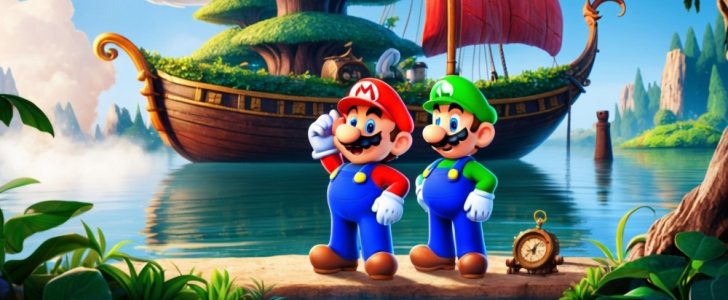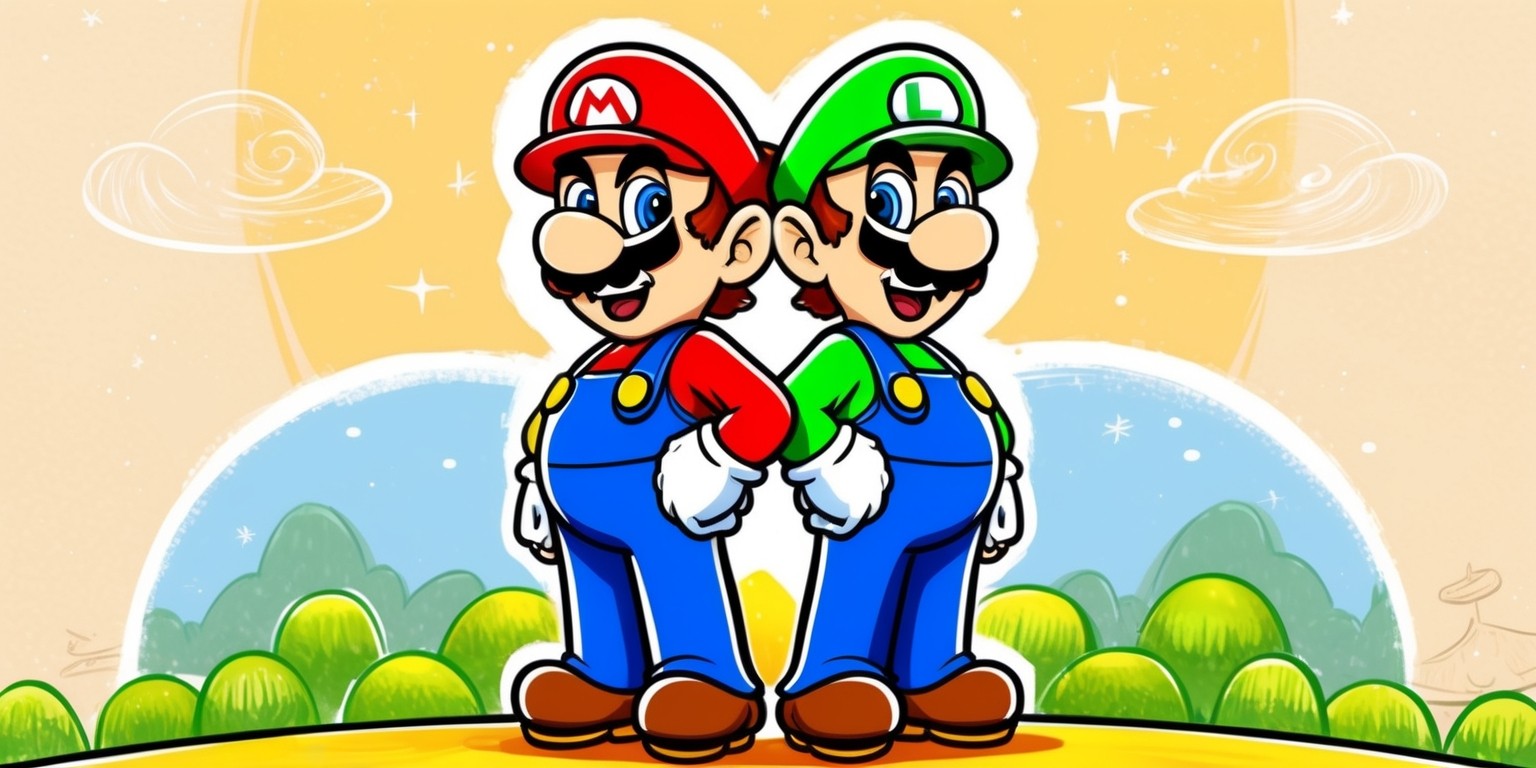Navigating New Waters: The Ambitious Yet Flawed Journey of Mario & Luigi: Brothership

The Mario & Luigi RPG series has long been a beloved presence in the gaming community, originating on the Game Boy Advance and capturing the hearts of players through its unique mechanics and charming storytelling. As the franchise evolves, it brings us the latest installment: *Mario & Luigi: Brothership*. This game has transitioned from its handheld roots to the Nintendo Switch, aiming to redefine gameplay while still maintaining the essence of the series. However, within its ambitious scope lies a struggle to deliver a truly satisfying experience, as it grapples with its own identity and pacing.
Reimagining the World of Mushroom Kingdom
In *Brothership*, players are introduced to a fresh world that significantly departs from the traditional Mushroom Kingdom. Here, the denizens find themselves transported to Concordia, a strange, divided realm made up of several islands. Originally part of a single landmass, these islands have become isolated following the wilting of the Uni-Tree, a vital force that once connected them. As players navigate this new landscape, they are tasked with using a ship to ferry a new Uni-Tree sapling across the oceans, gradually restoring connection between these islands.
Island Adventures Await
The game brilliantly utilizes its island setting to craft diverse environments, each possessing unique themes ranging from deserts to corporate skyscrapers. This variation provides a rich backdrop for myriad quests and stories. Notably, the Great Lighthouses also serve as significant dungeons within the game, adding layers to the narrative that unfolds through smaller island stories and broader arcs tied to the looming crisis of separation.
Character Visualization and Humor
One of the standout features of *Brothership* is its stylistic art direction, which breathes life into both new and familiar characters. The animation quality elevates character interactions, enabling a wealth of expression without any spoken dialogue. Moments like Mario's flawless landings, contrasted with Luigi's amusingly imperfect ones, contribute to a lighthearted atmosphere riddled with charm and personality.
Exploration and Gameplay Mechanics
Despite the vibrant settings and humor, exploring these islands presents a more subdued experience. The exploration mechanics take a hit; the game’s platforming segments lack the fluidity one might expect, often feeling somewhat rigid. While this installation attempts to innovate, the dual-play interaction that characterizes previous titles takes a backseat, leaning more toward Mario's solo endeavors, making Luigi a sidekick rather than an equal partner.
Combat Dynamics Unfold

In stark contrast to exploration, Luigi and Mario hold strong in combat. The game employs a well-crafted timing-based attack system that enhances player engagement. By utilizing their unique skill sets, the brothers navigate confrontations with various enemies while also introducing new elements that deepen the combat experience. Luigi’s "Luigi Logic" special moves create moments of vulnerability for adversaries, adding a strategic layer to fights that feels rewarding.
Revamping Combat Elements: The Plugs
Adding to the excitement is the introduction of Plugs, which function as power-ups that teams can equip and customize. These enhancements allow players to modify their abilities during battles, granting temporary advantages or additional effects based on their performance. Not only do they encourage experimentation reminiscent of the *Final Fantasy* Materia system, but they also introduce exciting tactical options that keep the gameplay fresh and dynamic.
Pacing Problems Arise
Unfortunately, as *Brothership* unfolds, its pacing emerges as a significant drawback. Compared to earlier titles that usually wrapped up within a compact timeframe, this new installment stretches the gameplay experience, reaching out for almost double the recognized playtime of prior entries. The introduction of key mechanics, such as Plugs—which appear well past the ten-hour mark—steps on the toes of optimization, leading to potential player fatigue.
Repetitive Gameplay Experience
As players journey through the game, repetition becomes an increasingly palpable concern. During late-game scenarios, quests often lead players to revisit islands and engage in similar battles almost consecutively, which can sap momentum and excitement. This back-and-forth travel, coupled with limited fast-travel options on smaller islands, adds layers of tedium that overshadow the vibrant exploration intended by the game.
Humor Shines in Dialogue
While many gameplay aspects may lose their spark, the humor does find its moments, with clever writing and comedic situations emerging unexpectedly near the game's conclusion. Such comedic relief shows that, beneath the pressure of lengthy gameplay, the charm of the series still has some delightful surprises in store for players willing to endure the journey.
Aiming for Connection and Togetherness
At its heart, *Brothership* strives to convey an uplifting message about connection and the value of interpersonal relationships. The struggle against loneliness and isolation symbolizes larger societal issues—a narrative that has offered a poignant backdrop for the lighthearted adventures of Mario and Luigi. Layered beneath the gameplay complexity, this heartfelt component resonates with audiences, even when the execution wavers.
Ambition vs. Execution
The ambition behind *Brothership* is palpable, as the drive for a more expansive RPG experience shines through. Yet this desire creates a tension that hinders its flow. The extended length does not significantly enrich the storytelling or gameplay; instead, it highlights the simplicity of its core components, as fatigue sets in from repeated mechanics and drawn-out quests.
Final Thoughts on Brothership
As *Mario & Luigi: Brothership* comes to a close, it leaves players with mixed emotions. While the game is well-crafted and filled with delightful moments, its ambitious attempts to evolve the franchise ultimately stumble under the weight of its own aspirations. Striking a balance between innovation and coherence remains a challenge, giving players a memorable yet imperfect journey through a world freshly imagined.
In conclusion, while *Brothership* may not fully achieve its lofty goals, its blend of humor, character, and heart still makes it a worthy, though flawed, entry in the beloved franchise. For fans of Mario & Luigi, it represents both an effort to push boundaries and an affirmation of the nostalgic elements that define the series.



